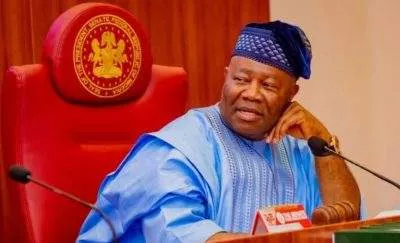
Last Wednesday, Nigeria's upper parliament became a grammar class where semantics, syntax and structure are examined. His Excellency, the Senate President of Nigeria, Godswill Obot Akpabio, suddenly became an emergency interpreter and lexicographer. Akpabio's interpreter's dilemma reminds me of Field Marshal Gerald Templer. A senior British Army officer, Templer was best known for the implementation of strategies that heavily contributed to the defeat of the Malayan National Liberation Army (MNLA) during the Malayan Emergency of 1949 to 1960.
On the instruction of Prime Minister Winston Churchill to temper communist insurgency among the Malays, Templer arrived in a Malayan village where some communist guerillas were getting assistance from villagers. In anger, Templer burst out, "You are a lot of bastards!" His interpreter reported this to the people in Malay as, "His Excellency informs you that he knows that none of your mothers and fathers were married when you were born." Templer, still fuming like an angry python, shot another arrow, "You may be bastards but you'll find out I'm a bigger one!" Missing the point of Templer's vituperations completely, the interpreter announced to the bemused villagers, "His Excellency does admit however that his father was not married to his mother when he was born!"
In his language surgeon role last week, Akpabio acted like Templer's interpreter. Cyril Fasuyi, senator representing Ekiti north in the senate, had stirred the hornet's nest. In the process, he played the role of the wife of Odogo. The whole village had been in turmoil over the theft of a villager's goat. It necessitated a house-to-house search. When the search party got to Odogo's house, he was absent. Asked if the family had seen the missing goat, Odogo's wife told the party to wait for her husband's arrival; perhaps he might know where the goat was kept. When someone is trying to be clever by half like Fasuyi and in the process causes the escalation of a notorious fact, Yoruba compare such persons to "Adasi'ni l'orun aya Odogo."
While raising a point of order, Fasuyi alleged that the petrel of the parliament, the voluble Senator Ali Ndume, breached his privilege in a recent comment while granting a Lagos television station an interview. At the interview session, Ndume alleged that the Bola Tinubu government had made life miserable for Nigerians and was, more or less, a Kleptocrats' Republic. "It happened over the weekend, on the allegation, blanket allegation, by Senator Ali Ndume that every one of us are (sic) thieves. That is a very blanket statement. I need explanations for my children and my loved ones. They want an explanation on the inference of what Senator Ali Ndume said about all of us in government... This statement has put me under public ridicule in my constituency," Fasuyi said.
But Akpabio, the Templer interpreter, worsened the take even more. "He did not say you are a thief, he said all of you in government are kleptocrats. A thief is different," Akpabio had explained to Fasuyi. This makes one wonder whether the senate president goes to the parliament with his butler. Or he was plain ignorant of the grammatical connotations of kleptocracy? Akpabio's persistent Freudian slips may speak to a certain limitation or deeper issue that we may want to look up. Same week, he chided a fellow senator Natasha Akpoti-Uduaghan with a sexist comment. He reminded her that the senate was not a nightclub. Only narrow-minded chauvinists who believe that every beautiful woman must be a slut who frequents pubs make such remarks. Same Akpabio, during a visit to the Nigeria Institute of Legislative and Democratic Studies in Abuja in June, had made the scientifically disjunctive statement that the reintroduced national anthem - "Nigeria, We Hail Thee" - could have prevented banditry if Nigeria had not changed it in 1978. How many such slips can one remember?
Oh, so Fasuyi was just hearing the allegation for the first time that the parliament of which he is a member, the Nigerian presidency and the Nigerian political class in general, are one colony of rogues and thieves? Wonderful! If Nigerian senators' children, like Fasuyi's, and their said constituencies, compare their financial statuses before they became senators, with their stupendous wealth now, none of them will disagree that they are indeed kleptocrats. Only kleptocracy could make one transform into such stupendous material majesty. Ndume merely stated the obvious that the APC, which currently represents the Nigerian political class, is indeed a republic of kleptocrats. It however doesn't mean that the PDP, its progenitor in government, and even the Labour Party, if it ever gets into office, wouldn't be one, too. Kleptocracy runs in the genes of the Nigerian political class. The truth of Ndume's statement is not lost on Nigerians.
We all know that Ndume, being part of the gang of kleptocrats himself, knows the modus operandi of this kleptocracy. He is shackled from revealing the specifics of his allegation by the Nigerian law of defamation. However, as my people say, we may be ignorant of all we do not know but we are certain that three people cannot stand in twos. Statistics have shown that the Nigerian political class has stolen, at a conservative estimate, over 90% of Nigeria's resources since independence. And it is not about to stop. The pervasiveness of corruption in Nigeria, especially among the political class who occupy governmental positions, has led many to suggest that, perhaps we should stop troubling this troublous genie called corruption, welcome it with open hands as a major component of our blood corpuscles and create a hallowed space for it in our national development.
Two Thursdays ago was the United Nation's anti-corruption day. It is a day set aside to campaign against this lumberjack that has cut the plummest of the wealth of developing countries of the world. Chief among these lumberjacks is the political class. About this time, a report was published on the website of the National Bureau of Statistics (NBS). It showed that a total of ₦721 billion ($1.26 billion) was paid as bribes to public officials in 2023, the bulk of whom, I am sure, were members of the political class. The dramatic irony in this is that Abdullahi Ganduje, the man who wrote the senate for the removal of Ndume from his position as senate chief whip and deputy chairman of the appropriation committee, is currently embroiled in a kleptocracy allegation, theft of stupendous public fund. The ₦721 billion theft report came from findings by an NBS partnership with the United Nations Office on Drugs and Crimes.
In August last year, after concluding ministerial screening, Akpabio slipped a speck of how the national assembly is a major kleptocracy hub. While addressing senators, Akpabio said, "To enable all of us to enjoy our holidays, a token has been sent to our various accounts by the clerk of the national assembly." That token is a euphemism for a bribe, details of which can never be found in any books. It will be subsumed under an opaque graft heading.
So, when Fasuyi, like a harlot feigning prudery, claims his children and constituents were shocked that his party had been called kleptocrats, Nigerians must have smothered a rude giggle. The distinguished kleptocracy-denouncing senator will first have to prove, as it is said in law, that the Nigerian political class has honour, ab initio.
More telling in this kleptocratic discourse is a growing atmosphere of despotism and impatience for opposing views in Nigeria's parliament. When former senate president Ahmad Lawan made that noxious statement that every bill brought by the Buhari government would be passed in the green chambers, Nigerians thought his' was the height of legislative grovelling. Today, we witness a senate that confidently and unashamedly weaves a grovelling before the executive with legislative tyranny. The result is a disgraceful national coat of many colours. To say the obvious, Abdul Ningi was suspended by this same senate and nothing happened.
A similar fate befell Ndume last week for saying what every Nigerian knows about this government. Fasuyi even set up a Ningi-type crucifix for Ndume so that he could be similarly hanged. In the executive last week, a bill seeking the establishment of a Local Government Election Commission found its way into the senate. Perhaps, what will follow is Alpha Beta collecting taxes in councils and all LG funds paid into the Treasury Single Account (TSA). The federal government is already a behemoth controlling 52.68% of revenue. States and local governments are left with 26.72% and 20.60% to share.
The question then is, who peers searchlight into what FG does with its own money? It is why we periodically throw up the Diezani Maduekes, and Godwin Emefieles (who knows who the corruption poster boy of this government will be). It is also why the humongous corruption at the Humanitarian Affairs ministry will not abate; why a minister could fuel her car from Abuja to Anambra state with a whopping ₦1.5 million and yet arrogantly ask, "What is the big deal?"
All these remind me of Late Chief Adebayo Faleti's "Òrò yìí ó mà l'éyìn"warning in the famed Yoruba movie, Saworoide. "Òrò yìí ó mà l'éyìn", literally translated, means, there sure is a repercussion or eventuality to any action.Nigeria has already established the trinity of a kowtowing, lapdog and tyrannical senate. An executive of doubtful probity and accountability pedigree, but with humongous resources, is also a done deal. When mixed with a captive judiciary inside the presidential pouch, we may just be walking down the alley of a scenario predicted by Anthony Enahoro on the floor of the House of Representatives in 1962. Looking into his divinity board, I presume, Enahoro proclaimed that Nigeria was embarking on a journey the end of which no one knew. That end happened four years later. With a Nigerian public whose capacity to dispassionately interrogate the honesty of thoughts of their leaders is yielding space, we are already in trouble. Add this to a Hallelujah chorus group that grows every day, despite the overwhelming hunger in the land, the trouble quadruples. Together, they are leading us to how Germans and Italians clapped on their leaders while busy fiddling with trivialities. Gradually, Hitler and Mussolini cobbled together the wools of dictatorship.
For Olatunji Dare at 80
I have, on countless occasions, told the story of how the 1990 killing of journalists, Kris Imodibie of The Guardian and Tayo Awotunsin of the Champion newspapers by Charles Taylor in the Liberian war tilled the land of my path to journalism. As a retelling, I had been downcast as a student of Philosophy at the University of Lagos on the prospect of a job upon graduation. Yet a sophomore, one day, as I read Imodibie's profile in the Daily Times inside the library of Unilag, I found out that he graduated from my department in 1984. I was super-excited and told myself that I could be a journalist, too. Beginning from then, I spent every penny of allowances given me by my father on typing articles which I subsequently sent to virtually all Nigerian newspapers. One of those newspapers was The Guardian.
One day, I walked into Rutam House. I had a typed copy of an opinion article I wrote. Directed to the office of the chairman of the editorial board, I met the chair's secretary who casually waved me into the chair's office. There sat a man I had idolized over the years in the calmest of miens I had ever seen, Olatunji Dare. Even as a student, his serpentine weave of language and mesmerizing satire stood him out among writers of the time. That unexampled craft, especially his satire, has been aped unsuccessfully, indeed fatally, by many who attempted to patent it.
Dare looked up at the young boy before him that day as I thrust a copy of the article into his hands. He read the first paragraph. "Young man, are you sure you wrote the piece?" he asked me. I assured him I did. He then thanked me as I left his office. A few days later, the piece was published. I nearly set my room on fire that day. To be published by the Guardian! I hadn't finished celebrating meeting my writing idol when the joy of being published in the Guardian came.
I didn't get to converse with one of Nigeria's greatest essayists and columnists until many years later. I had been a guest of Professor Wale Adebanwi, then of the University of California, Davis, in his house in Sacramento when he engaged in a phone conversation with Prof Dare. He promptly told him I was his guest and Prof sought to speak with me. He wondered why I declined to partake in a festschrift in his honour and I apologised that a communication breakdown must have been responsible.
Prof Dare has over the years earned his badge as one of Nigeria's major public sphere assets. On his 80th birthday, we can only wish him many more fruitful years. And the grace to witness the maturation of the Eldorado he wishfully penned for Nigeria.
Three Gbosas for the god of the gut
Perhaps the Nigerian Labour Congress (NLC) didn't know: Since the days of Paschal Bafyau, Nigerians have had a huge trust deficit for so-called labour activists who sell their people at the drop of a hat. So, when on Thursday last week, officials of the NLC walked to the Aso Rock Villa, singing a mimed "three Gbosas" song like kindergarten children just given a pack of noodles, the people suspected that the ancient alimentary consideration had interfered with a laudable activism.
How did the wage construct of ₦650,000 that the NLC built suddenly collapse to ₦70,000? If the NLC knew it was heading towards that miserable sum in the face of the daunting existential crises that Nigerian workers face, why shoot up the people's adrenaline this high? The truth is that the union's sincerity exemplified by the likes of Michael Imoudu, Wahab Goodluck, Hassan Sunmonu and Ali Chiroma is gone forever. Who will take labour seriously any longer? The NLC wasted the time of Nigerians and took the people for granted.

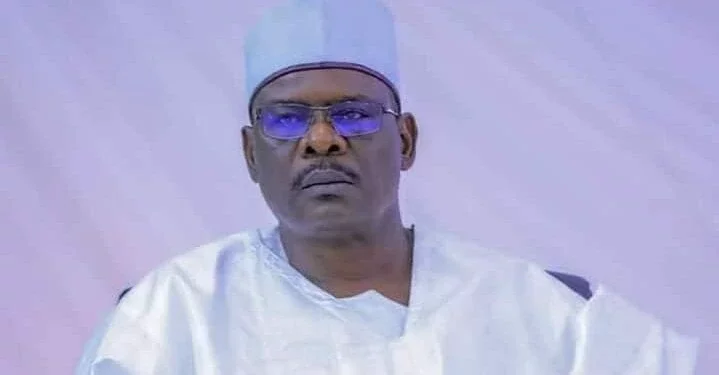
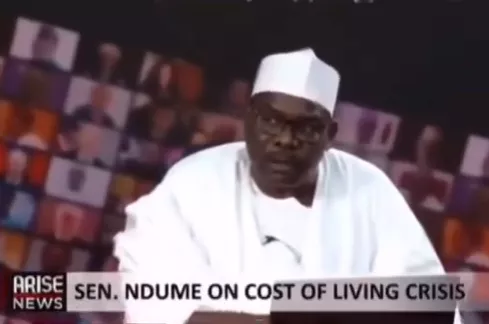
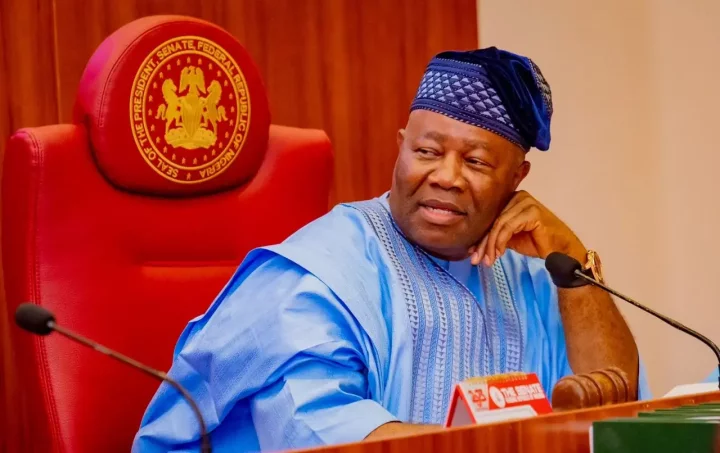
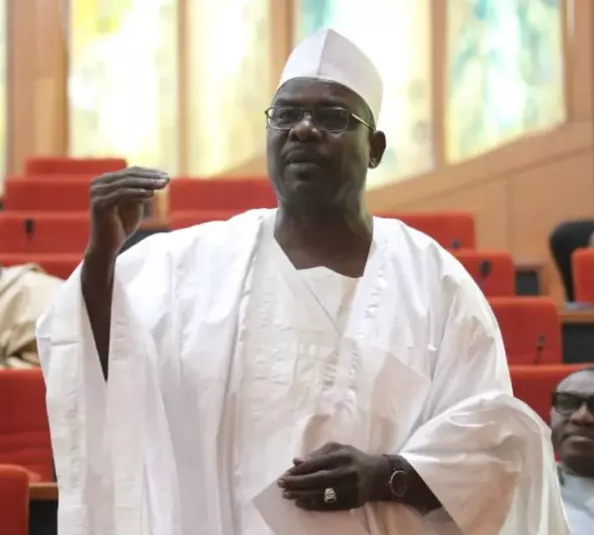
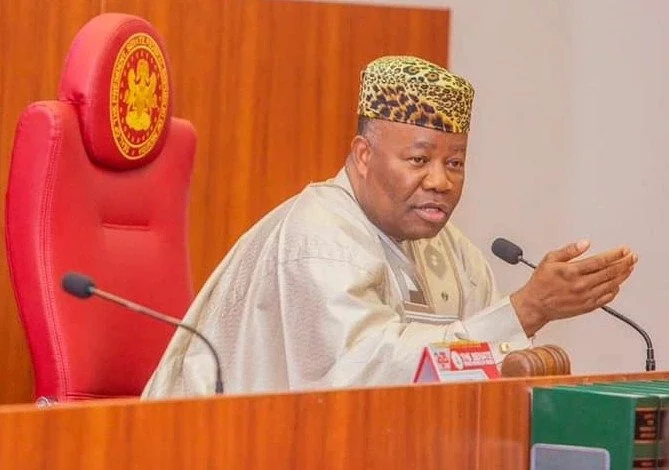
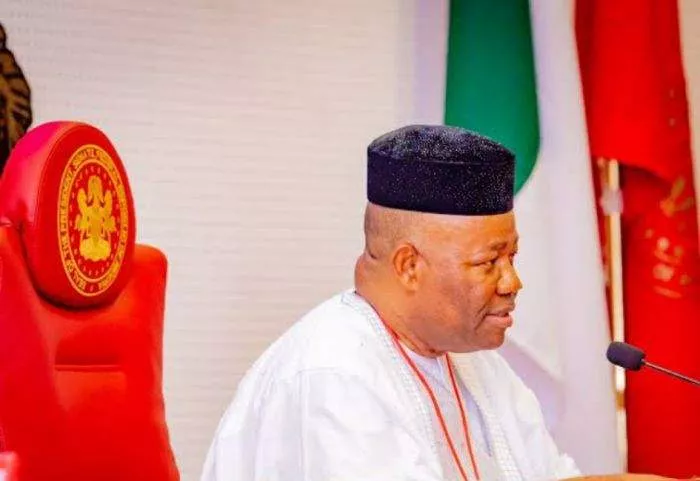
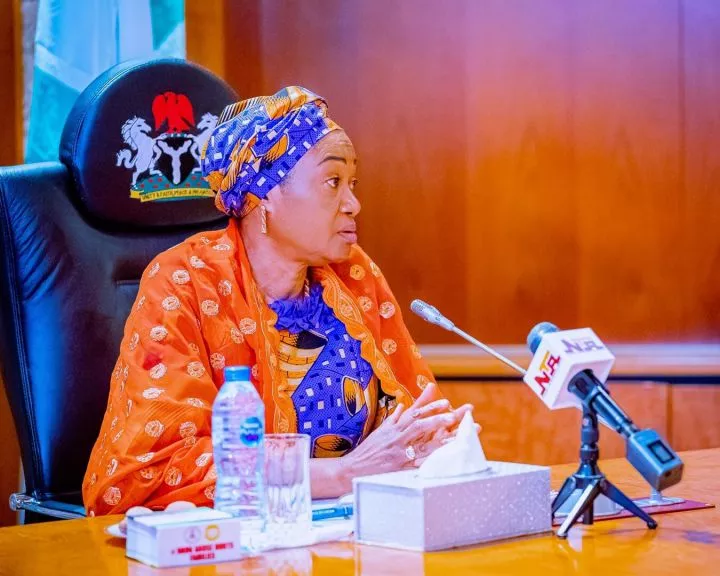







Comments